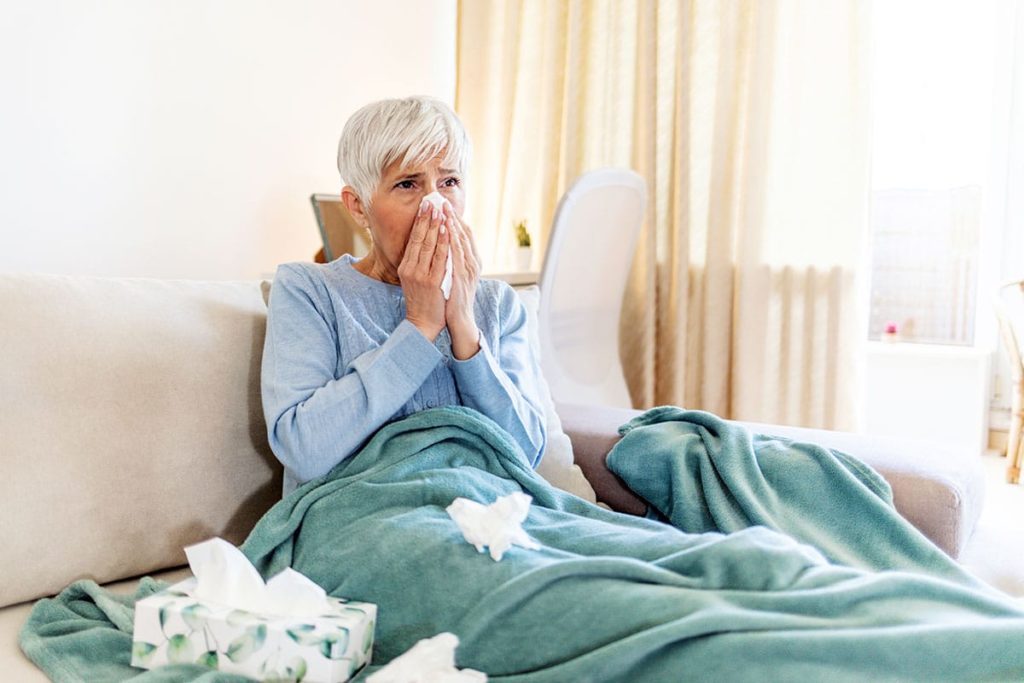People of all ages can develop respiratory infections known collectively as pneumonia. However, for several reasons, pneumonia is a special concern for older adults. A health and wellness program can help control your age-related risks. Still, it’s vitally important to recognize the potential symptoms and signs of pneumonia in seniors. By doing so, you can seek needed medical attention as soon as possible. In turn, prompt medical care can help you avoid the worst potential consequences of pneumonia.
Our health and wellness program at Parkway Place puts an emphasis on education and offers many resources for seniors and their families. Contact us at 281.305.1846 for more information.
What Is Pneumonia?
Pneumonia is the common name for a group of infections caused by viruses, bacteria, or fungi. No matter their source, these infections all inflame the air sacs, or alveoli, in at least one of your lungs. They can also cause your alveoli to fill up with pus or fluid. Pneumonia may affect one or more entire sections, or lobes, of your lungs. It can also affect smaller lung areas.
Some people develop only mild cases of pneumonia. However, the illness can also take a moderate or severe form. Your age is one of the most significant factors in determining the severity of pneumonia. As a rule, the risks of severe problems are elevated for anyone age 65 or older. In a worst-case scenario, the illness can have a fatal outcome. In fact, seniors are more likely to die from pneumonia than people in any other age group.
Potential Signs of Pneumonia in Seniors
The signs of any given illness are visible things you can observe in a person affected by that illness. Specific potential signs of pneumonia in seniors include:
- Coughing that produces phlegm
- Shortness of breath
- Sweating
- Chills
- Vomiting
Seniors, in particular, may also appear unusually confused or mentally disoriented.
Symptoms of Pneumonia in Seniors to Watch For
Not all of the potential effects of pneumonia in seniors are visible from the outside. In addition, you may experience effects only detectable to you. In any illness, these kinds of effects are commonly known as symptoms. Possible symptoms in affected seniors include:
- Fatigue
- Pain in your chest while breathing or coughing
- Nausea
You may also develop diarrhea. Technically, this is a sign, not a symptom. However, you may be the only one aware of this sign.
Body temperature alterations are also common in seniors with pneumonia. But it’s important to note that not everyone is affected in the same way. Your body temperature may spike if pneumonia is present. However, it can also fall below normal. Lower-than-normal temperatures are more common in seniors with weakened immune systems.
The Stages of Pneumonia in Seniors
Infection in an entire lobe of a lung typically leads to four stages of pneumonia in seniors. For many older adults, the only sign/symptom during the first stage is unusual confusion. You may also feel congested, start coughing and develop a fever. In stage two, your red blood cells will begin fighting the infection. In stage three, your red blood cells start to die off. However, other parts of your immune system are still hard at work. If you recover from pneumonia, your immune system will gain the upper hand in stage four. In turn, you’ll gradually feel better.
Get More Information on Pneumonia in Seniors at Parkway Place
Want to know more about how pneumonia can impact senior health? Talk to the professionals at Parkway Place. We’re standing by to explain the risks of pneumonia in seniors. We can also show you ways to reduce your potential risks.
Parkway Place is committed to senior health and well-being. Our comprehensive slate of medical and activity options helps keep your pneumonia risks as low as possible. Call us today at 281.305.1846 for more information. As an alternative, you can fill out our brief online form.

